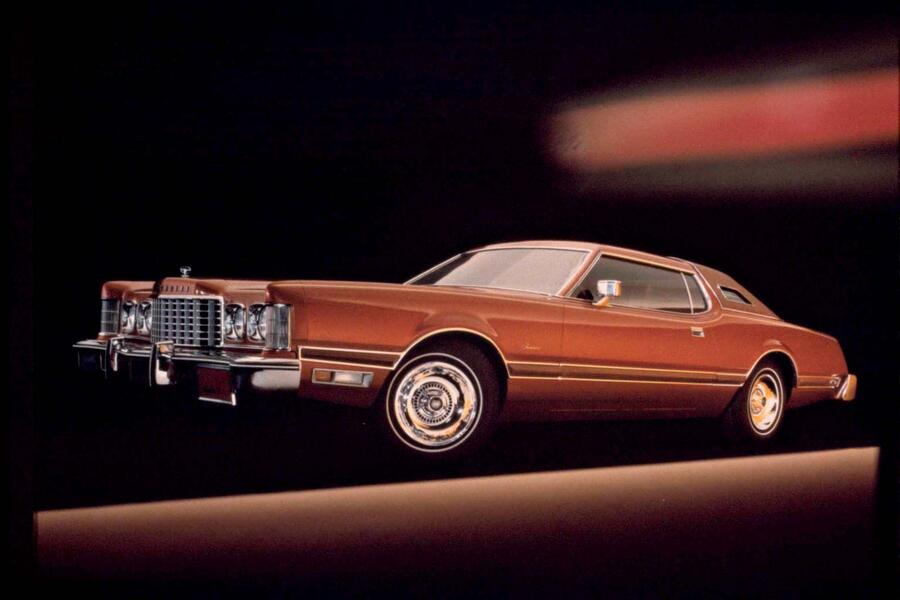The Ford Thunderbird started the genre and, like all land yachts, peaked in ’70s
As my long-suffering colleagues will know, when a new SUV with eye-watering dimensions is revealed, I’m among the first to moan about how large cars are getting.
So why do I love ‘land yachts’? The simple answer is that very few cars can match their pure ridiculousness – but the more detailed answer is their fascinating history.
In 1957, the Ford Thunderbird was transformed from a two-seat Corvette rival into a 5.2m-long, four-seat luxury barge.
The idea was a roaring success, with 200,000 of them being sold in the first three years – numbers that made other firms take notice.
As the 1960s arrived, the US car buyer was spoiled for choice.
There was the first V8 front-wheel-drive ‘personal luxury car’ in the form of the Oldsmobile Toronado (5359mm long), the striking Buick Riviera (5823mm) and, the most luxurious of them all, the Cadillac Eldorado (5715mm in fourth-generation form).
In my eyes, this was peak land yacht. The Riviera in particular is a truly stunning machine – nearly six metres of gorgeous, angular styling dragged along by a 340bhp 7.0-litre V8 up front.
It had a simple purpose of highway cruising and it’s hard to argue that anything else could do it with this much style.

A large footprint was seen as a selling point and the open roads of the US meant that cars could keep getting bigger and bigger.
By the mid-1970s, the two-door Lincoln Continental Mark IV was verging on 5.8m long, while the Cadillac Coupe de Ville was closer to 5.9m. Engines were huge too.
Most of these behemoths were powered by V8s ranging from 6.0 litres to 8.0 litres.
These were the last of their kind, though, owing to the 1973 oil crisis finally catching up with them.
Emissions regulations made a mockery of the largest engines – the 1975 Coupe de Ville had an 8.2-litre engine that was choked to an output of just 190bhp – and, as a result, capacities shrunk and the ludicrous body lengths, unable to be propelled at anything more than a frankly embarrassing crawl by these smaller motors, went with them.
As the sun rose on the 1980s, the land yacht was sunk. The last of the breed had a different character to them.
Maybe I’ve watched Goodfellas too many times, but I view them as having a somewhat villainous character to them, trading on past glories while ignoring their imminent demise in a world that was becoming too small for them.
Seeing land yachts anywhere is special, but seeing them in the UK is something else.
They look comically large, but I think it’s great that people love them enough to use them in an environment that’s orders of magnitude more cramped than they were designed for.
They’re so wildly inappropriate, so alien even in today’s world, that I can’t help cracking a smile whenever I see one.


